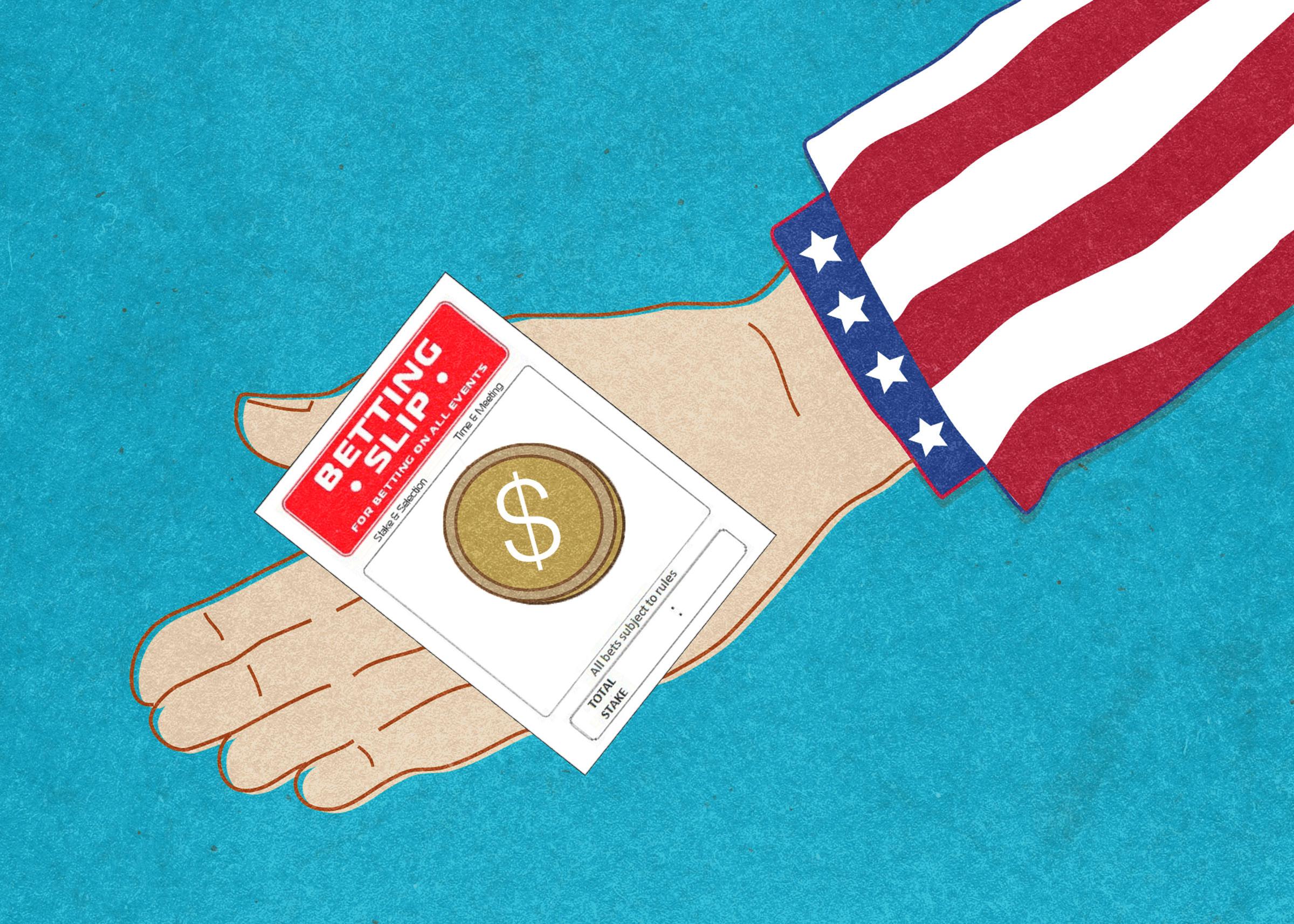
The Supreme Court struck down the Professional and Amateur Sports Protection Act of 1992, which prevented states from making their own regulations regarding sports gambling, on Monday. The case, Murphy v. NCAA, began as New Jersey’s attempt to revive the struggling casino industry in Atlantic City against the wishes of major sports leagues—who have since softened on gambling but would prefer a federally regulated system—but now the implications extend far beyond the Garden State. Here’s what you need to know.
Hooray! So My Sketchy Offshore Gambling Site Is Legal Now?
No. It means that states may now “sponsor, operate, advertise, promote, license, or authorize” sports betting. Each state can now individually consider whether or not to legalize gambling and what it would look like. All the specific questions—can people gamble online or strictly in person? Will sportsbooks take in-game wagers? What are the compliance and regulatory restrictions?—will be determined across 49 different states (Nevada was grandfathered in).
What Happens Next?
Chaos. New Jersey is set to have sports gambling up and running at the Monmouth Park racetrack within a month, and West Virginia won’t be far behind. There’s a lot of money to go around, and the fight for how to split the profits is just starting. Sports leagues—the NFL, NBA, MLB, NHL, and NCAA were involved in the lawsuit—say that gambling will increase the risk of corruption, which the leagues will need to prevent. The NBA and MLB have floated a so-called “integrity fee” of about 1 percent of all money gambled to cover their increased anticorruption costs. Casino operators have balked at an integrity fee, both for the size (1 percent of all wagering activity is roughly a quarter of a sportsbook’s revenue) and the audacity—legalized gambling should increase the total interest in sports, driving up ratings and making the leagues money.
Now the leagues and the gaming industry will wage a lobbying war in every state in America where gambling may be legalized, attempting to box each other (and taxpayers) out from rebounding any additional revenue. Five states—New Jersey, Connecticut, Pennsylvania, West Virginia, and Mississippi—preemptively passed state bills to legalize sports gambling, and at least 14 other state legislatures have introduced bills (you can find your state’s status here).
What Happens Long Term?
The freedom for states to draft their own laws for sports gambling could create a complicated legal patchwork, which is why the leagues, which would be better served by a federal solution, were suing to stop this from happening. Navigating and complying with all of these different laws will be a major headache for the leagues and may not maximize their ability to profit. Look for the leagues to follow the playbook that NBA commissioner Adam Silver outlined in a 2014 New York Times op-ed and begin lobbying Congress for a federal solution that would create uniform sports-betting standards (and profit splits) across the country. If a bill does pass Congress, it would head to the desk of the president, who has some experience with casinos.

